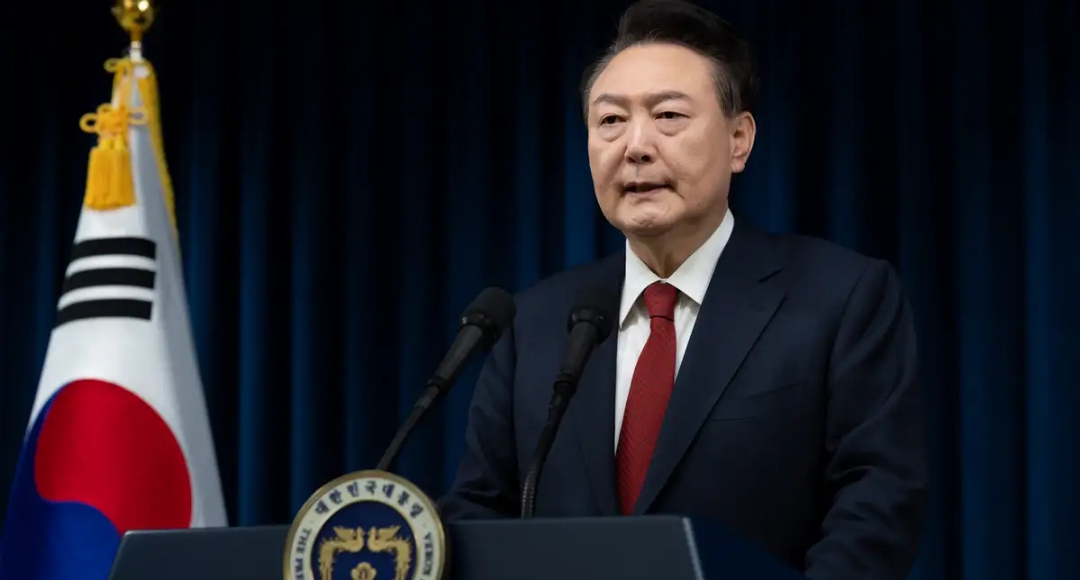Embattled President Yoon Suk Yeol of South Korea remains defiant in the face of legal scrutiny, refusing to appear before the nation’s anti-corruption authorities on Christmas Day. His absence underscores the deepening political crisis following his controversial declaration of martial law earlier this month, a move that has sparked widespread outrage and led to his impeachment.
The embattled leader’s refusal to honor the summons from the Corruption Investigation Office for High-ranking Officials comes as investigations intensify into the legality and motivations behind his abrupt military directive. Yoon’s unilateral decision to invoke martial law was met with immediate backlash, prompting lawmakers to convene in an emergency session. Within days, they overwhelmingly passed a resolution demanding the withdrawal of his order, a significant political blow to the president’s authority.
On December 14, the National Assembly took the extraordinary step of impeaching Yoon, citing his failed attempt to impose military rule as an egregious abuse of power. The impeachment stripped him of his presidential powers, relegating him to a suspended status. However, his ultimate removal from office hinges on a ruling by the Constitutional Court, a process that could take months to resolve, leaving the nation in a prolonged state of political uncertainty.
Despite his suspension, Yoon remains at the center of a sprawling web of legal investigations. The charges he faces are grave, with allegations ranging from abuse of power to leading an insurrection, a crime that carries the possibility of life imprisonment or even the death penalty under South Korean law. Yet, the president has adopted a combative stance, repeatedly defying calls to cooperate with investigators.
On December 15, Yoon ignored a separate summons issued by prosecutors probing the martial law declaration. His continued defiance has drawn sharp criticism from opposition lawmakers, who accuse him of attempting to obstruct justice and potentially tamper with evidence. The Corruption Investigation Office has indicated that it will continue to review the case, hinting at the possibility of seeking an arrest warrant should Yoon persist in his refusal to cooperate.
Yoon’s legal woes are compounded by his tenuous political standing. In a rare act of contrition shortly after declaring martial law, he issued a public apology, pledging to accept responsibility for his actions. However, this gesture did little to quell the mounting outrage among opposition parties and civil society groups. Critics argue that his refusal to engage with the investigative process undermines the very principles of accountability and transparency that he claims to uphold.
The controversy has laid bare deep divisions within South Korea’s political landscape. While Yoon’s supporters argue that his martial law declaration was a necessary measure to address an unspecified national security threat, detractors view it as a reckless power grab reminiscent of the country’s authoritarian past. The shadow of martial law evokes painful memories for many South Koreans, recalling the oppressive regimes that ruled the nation during much of the 20th century.
As the Constitutional Court prepares to deliberate on the impeachment, the stakes could not be higher. A ruling against Yoon would mark only the second time in South Korean history that a sitting president has been removed from office through impeachment. The court’s decision will undoubtedly have far-reaching implications, not only for Yoon’s political career but also for the country’s democratic institutions.
Meanwhile, the public remains deeply divided. Protests have erupted in cities across the nation, with demonstrators demanding justice and accountability. Some rally in support of Yoon, arguing that his actions were misinterpreted and that he is the victim of a politically motivated witch hunt. Others condemn his defiance as emblematic of a leader who has placed himself above the law.
For now, the nation waits. Yoon’s continued resistance to legal proceedings raises pressing questions about the limits of presidential immunity and the mechanisms of accountability in a democracy. With investigations ongoing and a constitutional verdict months away, South Korea finds itself at a crossroads, grappling with the challenges of maintaining democratic stability in the face of unprecedented political turmoil.




